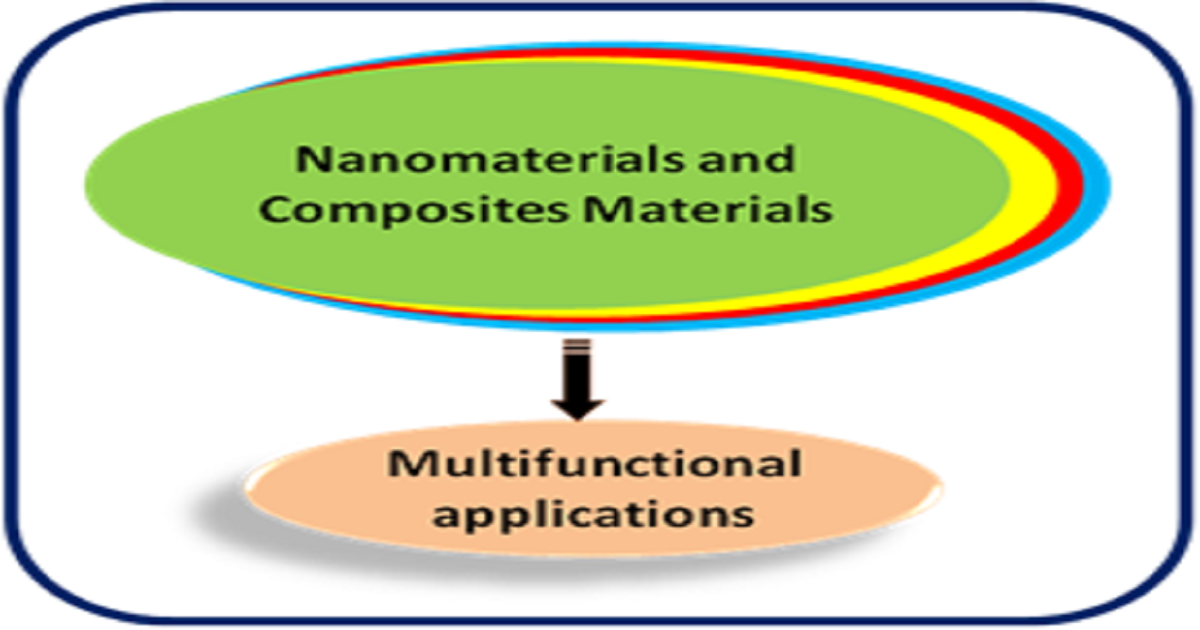Advances in Nanomaterials and Composites Materials for Multifunctional Applications
A special issue of Materials (ISSN 1996-1944). This special issue belongs to the section "Advanced Nanomaterials and Nanotechnology".
Deadline for manuscript submissions: closed (20 August 2023) | Viewed by 2833

Special Issue Editor
Special Issue Information
Dear Colleagues,
Nanomaterials and composite materials have been widely used in automobile, telecommunication, medical, electronics, renewable energy, and other industries. For instance, because of their good adhesive qualities and low dielectric constant, inexpensive oxide-based composites are attractive for use in electronic applications.
By lowering their thermal conductivity, these composite materials can be created to enhance the performance of thermoelectric materials. The improved thermoelectric properties are important for thermal management of electronics operating at elevated temperatures. The analytical framework that may be utilized to design and predict the thermal and electrical properties of composite materials is the secret to successful applications.
In this context, our Special Issue is intended to provide a platform for sharing recent advances in basic as well as applied research of nanomaterials and composite materials with relevant topics including but not limited to:
- Composite materials on the basis of oxide;
- Composite materials with polymer matrixes;
- Composite materials on the basis of ceramics;
- Advanced technologies of nanomaterials and composite materials;
- Nanomaterials and composite materials for electric and dielectric materials;
- Nanomaterials and composite materials for photocatalysis;
- Nanomaterials and composite materials for optoelectronic/photochemical devices.
Dr. Karim Omri
Guest Editor
Manuscript Submission Information
Manuscripts should be submitted online at www.mdpi.com by registering and logging in to this website. Once you are registered, click here to go to the submission form. Manuscripts can be submitted until the deadline. All submissions that pass pre-check are peer-reviewed. Accepted papers will be published continuously in the journal (as soon as accepted) and will be listed together on the special issue website. Research articles, review articles as well as short communications are invited. For planned papers, a title and short abstract (about 250 words) can be sent to the Editorial Office for assessment.
Submitted manuscripts should not have been published previously, nor be under consideration for publication elsewhere (except conference proceedings papers). All manuscripts are thoroughly refereed through a single-blind peer-review process. A guide for authors and other relevant information for submission of manuscripts is available on the Instructions for Authors page. Materials is an international peer-reviewed open access semimonthly journal published by MDPI.
Please visit the Instructions for Authors page before submitting a manuscript. The Article Processing Charge (APC) for publication in this open access journal is 2600 CHF (Swiss Francs). Submitted papers should be well formatted and use good English. Authors may use MDPI's English editing service prior to publication or during author revisions.
Keywords
- doped nanoparticles
- nanocomposites
- multifunctional nanomaterials
- photocatalytic activity
- microstructures
- photoluminescence properties
- optical spectroscopy
- electrical conductivity
- electrical properties
Benefits of Publishing in a Special Issue
- Ease of navigation: Grouping papers by topic helps scholars navigate broad scope journals more efficiently.
- Greater discoverability: Special Issues support the reach and impact of scientific research. Articles in Special Issues are more discoverable and cited more frequently.
- Expansion of research network: Special Issues facilitate connections among authors, fostering scientific collaborations.
- External promotion: Articles in Special Issues are often promoted through the journal's social media, increasing their visibility.
- Reprint: MDPI Books provides the opportunity to republish successful Special Issues in book format, both online and in print.
Further information on MDPI's Special Issue policies can be found here.






